Part I — Lineage
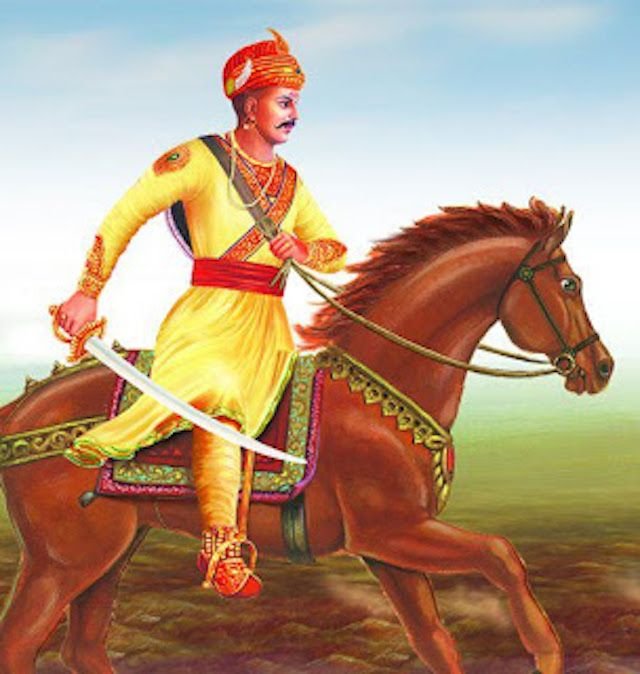
Lineage is an important part of Buddhism, not only for the various Buddhist schools today, but also in the original sense of how lineage was perceived during the time of the Buddha. The ideal of lineage can be found in the Pali words gotta/gotra, which is the family lineage traced through the side of one’s father.
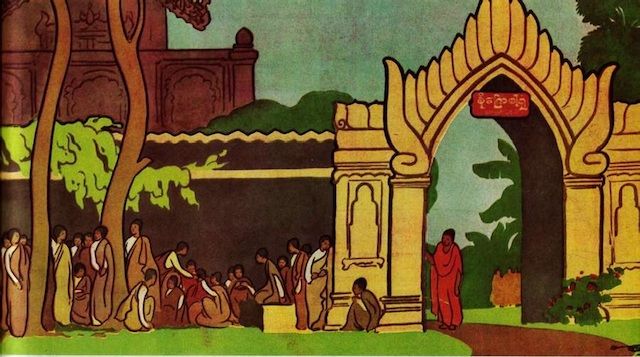
Becoming of the lineage is equal to initiation, and this is always a spiritual affair, entering into the ‘clan’ of Buddhist mystics who walk the Buddhist noble path. The followers of Gotama can be seen as the initiated that now belong to the Sakya ‘clan’, of which the Sakya lineage name (PDF)gotto was originally used and re-used to designate Buddha’s initiated followers.
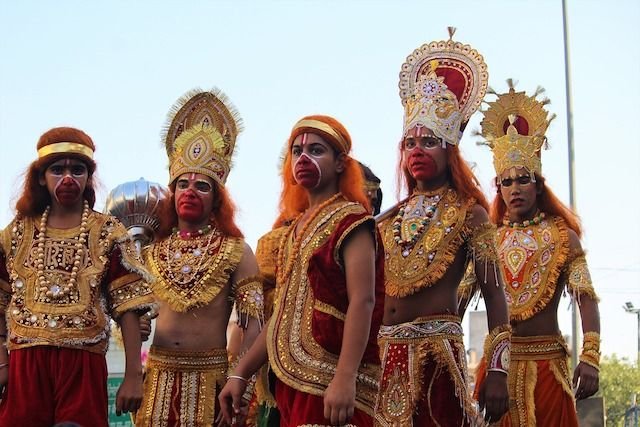
As seen in the Anguttara Nikaya, the lineage-enterer is part of the group of noble persons (ariya-puggala) who are worthy in the Buddhist sense:
“Monks, these nine persons are venerable, worthy of honor, worthy of gifts, worthy of salutations, the world’s unsurpassed field for making merit.
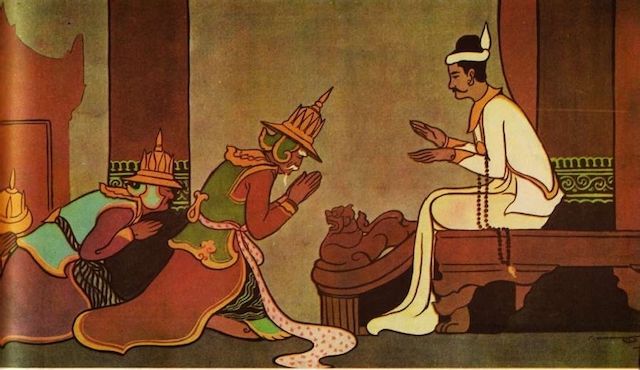
Another list of noble persons is given in the Book of Tens in the Anguttara Nikaya, of which the lineage-enterer is once again included:
“Monks, these ten persons are worthy of worship, worthy of reverence, worthy of gifts, worthy of salutations with clasped hands, a field of merit unsurpassed for the world.
A Wayfarer, arahant, a fully enlightened one, a Pacceka-Buddha, one released in both respects, one released by insight, one who has testified (to the truth) in his own person, one who has won view, one released by faith, and one who is has become one of the ‘clan’.”

To ‘become one of the clan’ is synonymous with becoming one of the elect, becoming part of the spiritual clan of Buddha’s followers, and it’s first stage already empowered with insight and noble thought, with immediate prospect of attaining the state of Stream-winner and the Way. The stream-winner here is the person who enters the stream and swims against the worldly current of becoming, back to the source of true being, and no longer being designated as a mere-worldly-person (puthujjana).
Another related term in the Pali texts is kolankola, translated in the P.T.S. edition of the Anguttara Nikaya as ‘reborn in a good family’ or ‘one who goes from family to family’. Now this family is not based on hereditary lineage or caste from a family such-and-such, but similar in meaning regarding the lineage-enterer in that it is a preparatory move into the right direction of stream-enterer.
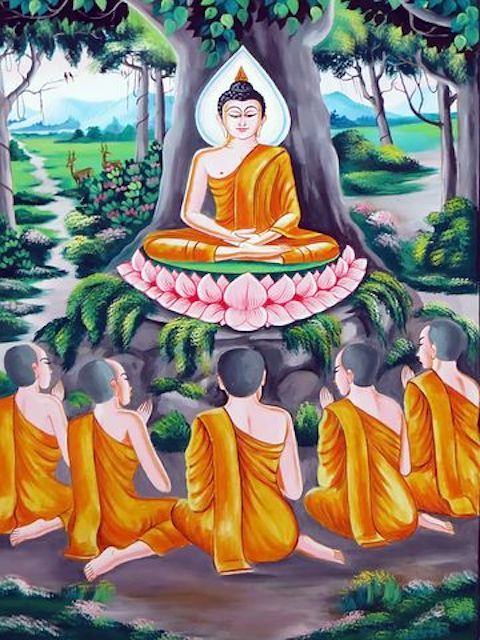
“Of him who has but seven more births at most, of him who is reborn in a good family, of the one-seeder, and of him who in this same visible state is arahant. Of such the goal is won here.” — AN V.120
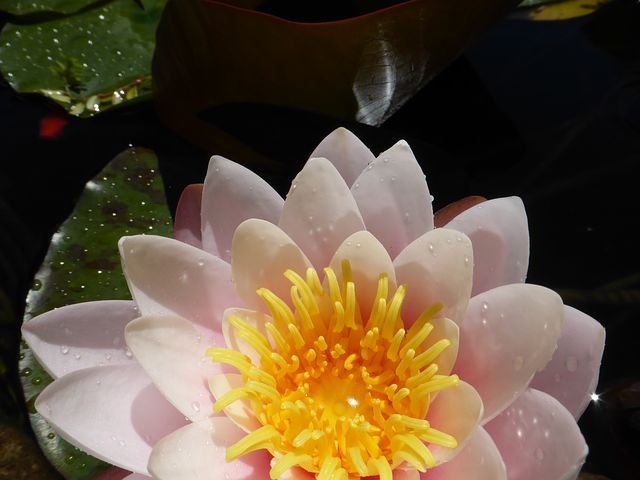
Awakening to the initiation of stream-entry is also a dying, a symbolic dying to the world of ordinary becoming in the stream of suffering. A transmission of this awakening is what the teachings of the Buddha means when it is said that the Dhamma is a teaching of ‘come and see’ for yourself and to realize for yourself.
In the second part we’ll be discussing the concept of Caste and how it is understood in the Buddhist teachings.

I will flag comment spam at 1% strength. If you keep on spamming my post, I will flag you at 100%. I don't care if you have limited English abilities, write a couple of sentences about this article, no copy-paste, please. I will flag: one sentence comments, links to your blog and begging for up-votes and follows. Also, I will flag comments that have nothing to do with my blog's article. I will also check your comment section to see if you have been comment spamming on other blogs.


 A link to My Blog
A link to My Blog
@reddust,
It's amazing to see your knowledge about the Buddhism! Specially the way you took references! I assure you my dear friend, you found a great teacher and he found a great student as well!
Downvoting a post can decrease pending rewards and make it less visible. Common reasons:
Submit
I would like to see that kind of cultures and ideas in the future i mean we need more love and support to improve our cities so now with technology we just take a cellphone and "share time with others". Regards
Downvoting a post can decrease pending rewards and make it less visible. Common reasons:
Submit
What I find interesting is to research migration patterns of our worlds major religions...hehehe
So many Gods have come and gone... but there is only one true God to believe in and everyone is fighting over their God is the one true God...
Downvoting a post can decrease pending rewards and make it less visible. Common reasons:
Submit
I think lineage and caste is irrelevant and against humanity right, but every religions have specific rules and I appreciate and respect that, in Islam every person is have same position, no differences by the caste or other caused, thank you very much for your sharing to us valuable post, success always for you @reddust
Downvoting a post can decrease pending rewards and make it less visible. Common reasons:
Submit
During Buddha's time over 2500 years ago their was a caste system and no one could move out of that system...the cultural caste system was caste in cement...Buddha removed the material caste, anyone could attain enlightenment...this article was about the spirital clan/family one joins once one enters the stream, to go against the worldly ways to find freedom.
Downvoting a post can decrease pending rewards and make it less visible. Common reasons:
Submit
Does Islam respect other religions and religious views as a right of the individual and or society? If not Islam acts as a caste system...@abialfatih
Downvoting a post can decrease pending rewards and make it less visible. Common reasons:
Submit
Islam is very respect to other religious and on religious views as a right of the individual! in holy quran mention the freedom to people to choose they religion, If you have discord channel maybe we can discuss more...@reddust
Downvoting a post can decrease pending rewards and make it less visible. Common reasons:
Submit
@abialfatih, if a Muslim wants to leave the Islamic religion will they be able to without becoming an outcast? I know when I left the Christian faith to become a Buddhist some of my Christian community told my children their Mom was going to go to hell. If there is no way out of a religion or group that is called a cult and is like a caste system.
However the majority of Christians I know are okay with people choosing another religion even if they leave the Christian faith...I have also attended Buddhist vipassana meditation retreats with Jews, Christians including Christian Monks and Nuns.
Downvoting a post can decrease pending rewards and make it less visible. Common reasons:
Submit
I used to assume that the level (caste) that exist only in hindu belief, when I was a child I often watch the movie "MAHABARATA" which is played on television.
in the Sufi doctrine of one's birth is not a line of descent, but in practice in closer to God, the Qur'an says "truly the most glorious of you are the most devout."
Downvoting a post can decrease pending rewards and make it less visible. Common reasons:
Submit
I have no knowledge of buddism cause it’s not a practice in my part of the world, but I must confess ... with what I read so far from your post . I will definitely be able to say some things to those who have no knowledge of it at all. Always educative post . Keep steeming and adding value to lives, you’re much appreciated
Downvoting a post can decrease pending rewards and make it less visible. Common reasons:
Submit
@olumideolowyeye, you are being introduced to the basics and esoteric teachings at the same time...hahaha...(hugs)
Downvoting a post can decrease pending rewards and make it less visible. Common reasons:
Submit
Buddha teachings always shown to others better, positive things. You entered massive information using some resource sites. But I know you have more knowledge than book contents. Everyone can learn from here. Thanks for posted glorious post @reddust.
Downvoting a post can decrease pending rewards and make it less visible. Common reasons:
Submit
Thank you @templeflower, anyone who seeks this information can find it easily, it just takes some effort and discipline.
Downvoting a post can decrease pending rewards and make it less visible. Common reasons:
Submit
@reddust, Appreciated explanation about caste in early Buddhism. I totally read these context as you wrote here. But some source details couldn't find coz this is not a time. If I have free time definitely read those contexts via source. Long years ago Caste was most important for show family background. Currently my country has but I dis-agree with caste. We all are humans. I don't like imbalance. But Buddha's period happened massively. Those one nicely explained of Anguttara Nikaya.
I totally appreciated with Buddha coz above context told by him. Buddhist has more freedom. We had learnt lot of Buddha lessons and we must need to do. We can also didn't. It's reality of Buddhism. But need to be control. Thanks for inspiration.
Downvoting a post can decrease pending rewards and make it less visible. Common reasons:
Submit
There are some controversial words in my article that are translated differently depending on who is translating like gotta/gotra...hehehe
When I talk about caste it is in refrence to Buddha going aganst his cultures view that only certain families and high caste in India could attain enlightenment. Buddha said anyone can find freedom but of course they have to let go of their material lineage, caste, world view and join the spiritual family, clan, and let go of all views.
Downvoting a post can decrease pending rewards and make it less visible. Common reasons:
Submit
The truth is that I did not know anything about Buddhism but seeing this publication and the previous ones I am going to understand a little more about this wonderful world of Buddhism and meditation
Downvoting a post can decrease pending rewards and make it less visible. Common reasons:
Submit
My first articles are the introductions that all three schools, Theravada, Mahayana, and Vajrayana teach the Eightfold Path, Four Noble Truths, and Dependent Origination.
Downvoting a post can decrease pending rewards and make it less visible. Common reasons:
Submit
@reddust this is a nice post on lineage and cast. this is utmost true becoming of the lineage is equal to initiation, and it is always a spiritual affair, entering into the ‘clan’ of Buddhist mystics who walk the Buddhist noble path.
Downvoting a post can decrease pending rewards and make it less visible. Common reasons:
Submit
ahhh, you got it @peks, congratulations!
Downvoting a post can decrease pending rewards and make it less visible. Common reasons:
Submit
Living in a multicultural environment is a good thing that should not bother you. Knowing different cultures is important. You have to respect all cultures because it can upset the person with a different culture. They grew up believing in a certain set of values and ideas, as did their friends and family. IF you tell them they're wrong it means you insult their whole community. Culture looks like people. Learning about different cultures is fun and interesting. You will then realize the many similarities between cultures. It's fascinating to know what someone else can think about something you believe.
new and useful ideas. A different culture means different approaches to the fundamental ideas of your society. A different group could learn something new for your community. They could teach you new languages, new ways of cooking or making clothes.
a unified country. If people can celebrate their differences, they can work together to move forward and grow. They are able to recognize alternative beliefs and accept them.
Thank you very much for this post I am a Muslim and I respect all the cultres of the world thanks to you I learned a lot about Buddhism
Downvoting a post can decrease pending rewards and make it less visible. Common reasons:
Submit
In the best of worlds this happens @machhour ...but right now the world is in culture shock as cultures mix and try to find balance as large groups of peoplemove into established cultures ...plus we all can meet and talk on the internet, which is cool because I can ask questions! ...
The America's have been traditionally Christian in their short history as Nation States because of European migrations. That is changing now as people from Non Christian's migrate into traditional Christian cultures.
I can walk right out of cultural competition, take the spiritual path and transcend all this religious/nation/culture/caste/class competition...which is what this article is about.
Downvoting a post can decrease pending rewards and make it less visible. Common reasons:
Submit
I'm glad to reading most inspiration sentences instead excellent article. I study and follow Buddha teachings some years ago. But I didn't remember when's period. Lot of pali words learn to most harder and different than other languages. If we can follow Buddha's word no worries needed you will go higher. Better description here.
Downvoting a post can decrease pending rewards and make it less visible. Common reasons:
Submit
I had to study Pali words to understand my lessons. My Korean teacher didn't speak the English language well enough to teach me the subtle nuances of the Suttas I was studying. So I bought a Pali Dictionary and made list of words I didn't understand.
Downvoting a post can decrease pending rewards and make it less visible. Common reasons:
Submit
Historia as magistra vitae
Downvoting a post can decrease pending rewards and make it less visible. Common reasons:
Submit
The more things change the more they stay the same ....:p
Downvoting a post can decrease pending rewards and make it less visible. Common reasons:
Submit
This is really educative to know this aspect, and yes this is really reflecting the spiritual aspect and in my opinion this is an great subject because people are understanding the life and following the spiritual teachings in lineage that means the one families after and after and this is really great to know. Thanks for sharing this spiritual subject with us and wishing you an great day. Stay blessed. 🙂
Downvoting a post can decrease pending rewards and make it less visible. Common reasons:
Submit
To walk the Buddhist Path you have to let go of your worldly family, that is what this article is stating. That doesn't mean you have to leave your family, you have to let go of identifying with what is me and mine. Many people including myself take these teachings as literal when they are speaking of something that happens within the heart not outside of oneself.
Downvoting a post can decrease pending rewards and make it less visible. Common reasons:
Submit
Yes, in my opinion the more spiritual belongingness is true and the materialistic attachments will vanish. Thanks for the kind response. 🙂
Downvoting a post can decrease pending rewards and make it less visible. Common reasons:
Submit
essentially the lineage is the beginning of everything about Buddhism according to what I understood in this post. Thanks for this wonderful information, with this type of post I am learning little by little. Thanks for sharing the information. Happy day dear @reddust
Downvoting a post can decrease pending rewards and make it less visible. Common reasons:
Submit
Lineage can be material or spiritual depending on the context in which the word is placed in a passage...
AND...if the translator actually knows what he/she is talking about. The teachings of the Buddha have been translated so many times the orginal language has been lost (Buddhism is over 2,500 years old)...and many translators didn't know sanskrit or the vedas...Which was the primary religious texts Buddha was reacting too or maybe even reforming...hahaha (I am such a bad girl)...
Downvoting a post can decrease pending rewards and make it less visible. Common reasons:
Submit
the twelve principal deeds of Buddha are:
1 Descending from tushita Pure Land.
2 Entering his mother's womb.
3 Taking birth.
4 Mastering youthful skill and sports.
5 Enjoying a wife and retinue.
6 Taking ordination.
7 Engaging in meditation retreats.
8 Meditating beheath the Bodhil Tree.
9 Defeating the host of demons.
10 Showing the attainment of enlightenment.
11 Turning the Wheel of Dharma.
12 Showing the manner of passing away.
Downvoting a post can decrease pending rewards and make it less visible. Common reasons:
Submit
Thank you @dinissemata, I have attended several Buddhist Pureland teachings. Pureland is in Mahayana teachings and in Tibetan Vajrayana teachings. The articles I am writing are about the beginning of Buddhism, early Buddhism and Theravada teachings. There are some differences between Theravada and Mahayana/Vajrayana
https://www.buddhanet.net/e-learning/snapshot02.htm
Downvoting a post can decrease pending rewards and make it less visible. Common reasons:
Submit
If I assumed there were some differences, I started reading the link you sent me. Thanks for everything @reddust. Happy afternoon! I hope to continue reading more about the bidismo and seeing more of your art that is wonderful♥
Downvoting a post can decrease pending rewards and make it less visible. Common reasons:
Submit
This is so interesting. I will learn by researching this. Thanks for sharing @reddust
Downvoting a post can decrease pending rewards and make it less visible. Common reasons:
Submit
The family is either our material lineage or our spiritual lineage...the Wayfarer chooses the spiritual lineage.
Downvoting a post can decrease pending rewards and make it less visible. Common reasons:
Submit
An effective spiritual path is one that leads to liberation from suffering. The awakening in which it culminates is based on an accurate understanding of reality and a freedom from the disturbing emotions and obscurations caused by ignorance. We don’t need to give up what is good in our life, but to abandon the causes of suffering, to which we are so often attached. In following any path, there is no need to get stressed over what seems like a never ending series of books, commentaries and teachings on any particular path. We just need to master the specific knowledge that will enable us to get free from the cycle of lives conditioned by ignorance and pain. Ultimately, any lasting benefit of a spiritual path must not only improve our own lives, but that of others as well.
A structured path is the most beneficial because it takes into account the gradual nature of inner transformation. Each step leads naturally to the next. If is like building a house; you cannot put the roof on without having laid the foundation, raised the walls, and installed the timbers.
Downvoting a post can decrease pending rewards and make it less visible. Common reasons:
Submit
My teachers told me to pick a practice and stick with it...which I have but I also love to study and get to know the formulas each tradition has developed.
Downvoting a post can decrease pending rewards and make it less visible. Common reasons:
Submit
Niiiiiiiice! great article. you explain good the difference. i mean, hinduism for example is like it is you cant break out the caste.....buddhism was a bit more gentle ...i didnt remember the pali so well, so it is time to read it again!
thanks
Downvoting a post can decrease pending rewards and make it less visible. Common reasons:
Submit
Sometimes Buddhist teachers aren't that gentle...they teach depending on a persons conditioning...some people need gentle compassions, others need wrathful compassion, I think there are 84,000 different teachings to benifit beings of all sorts of conditioning.
Downvoting a post can decrease pending rewards and make it less visible. Common reasons:
Submit
Yes, always the same...You get what you give.
Than I can be thanksfully for the buddhist teacher I had.
They was calm, spoke only a bit.
But clear and heartfully.
🙏🏼🦋🌸🕊🌞💗🧘🏻♀️
Hugs to ya
Rise&Shine
Love&Light my dear @reddust
Downvoting a post can decrease pending rewards and make it less visible. Common reasons:
Submit
what is the purpose of caste division in Buddhism? I just heard that Buddhism prioritizes offspring,
in Islamic descent is not the most important thing, but faith is the benchmark, when the faith will blossom grow the nature of Taqwa
Downvoting a post can decrease pending rewards and make it less visible. Common reasons:
Submit
Hi. @reddust
Hi Madam This is a boring topic that has been narrowed before
The descent of instinct, and humanity. There is no choice in it. The child and his father are born, so is the son of a son of the Fallan descent, and the proportions imposed on him if he is in good or evil, he bears all the consequences of that genetic and social descent.
• As this is the case, it is necessary to distinguish between the ratios that are common to tribal and tribal, which is an administrative and social organization. One has the option of joining under him or rejecting him according to his will or perhaps because of the circumstances of the refuge against his will. The tribal or clan has advantages and disadvantages. . Their improper use has brought trouble to the individual and society, and its best use has brought stability and immunity to the individual and society. Among its pros and cons: social solidarity, family and tribal cohesion, learning commitment and discipline with noble values, strengthening compassion and compassion,
Plus, I asked you yesterday's question in your previous post
Possible answer if I need answers to your distinctive and wonderful
Downvoting a post can decrease pending rewards and make it less visible. Common reasons:
Submit
hello , congratulation is beautiful!
Downvoting a post can decrease pending rewards and make it less visible. Common reasons:
Submit
Fabulous one!
Downvoting a post can decrease pending rewards and make it less visible. Common reasons:
Submit
It all fits together in the end. I get it. Sadly many folks are too selfish and held hostage by the MdDonalds mentality to take the time to gain this understanding. thaank for resteem...

Downvoting a post can decrease pending rewards and make it less visible. Common reasons:
Submit
I used to assume that the level (caste) that exist only in hindu belief, when I was a child I often watch the movie "MAHABARATA" which is played on television.
in the Sufi doctrine of one's birth is not a line of descent, but in practice in closer to God, the Qur'an says "truly the most glorious of you are the most devout."
Downvoting a post can decrease pending rewards and make it less visible. Common reasons:
Submit
Sir your content very good all post interesting ...
Special post
I still waiting for your next post
Downvoting a post can decrease pending rewards and make it less visible. Common reasons:
Submit
intersting story...thanks for share
Downvoting a post can decrease pending rewards and make it less visible. Common reasons:
Submit
its very informative post for us sir...thanks for sharing it with us
Downvoting a post can decrease pending rewards and make it less visible. Common reasons:
Submit
this is a nice post on Lineage and Caste in Early Buddhism
lovely images to capture the information being disseminated
Downvoting a post can decrease pending rewards and make it less visible. Common reasons:
Submit
This was quite a good read. Thanks for sharing
Downvoting a post can decrease pending rewards and make it less visible. Common reasons:
Submit
Nice historic photos
Downvoting a post can decrease pending rewards and make it less visible. Common reasons:
Submit
Some photos are brings history
Downvoting a post can decrease pending rewards and make it less visible. Common reasons:
Submit